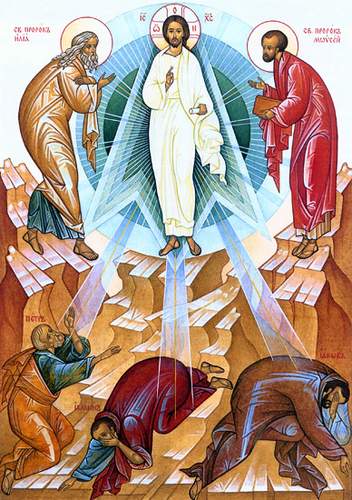16. No man, when he has lighted a candle, covers it with a vessel, or puts it under a bed; but sets it on a candlestick, that they which enter in may see the light.
17. For nothing is secret, that shall not be made manifest; neither any thing hid, that shall not be known and come abroad.
18. Take heed therefore how you hear: for whosoever has, to him shall be given; and whosoever has not, form him shall be taken even that which he seems to have.
THEOPHYL; Having before said to His Apostles, To you it is given to know the mysteries of the kingdom of God, but to others in parables; He now shows that by them at length must the same mystery be revealed also to others, saying, No man when he has lighted a candle covers it with a vessel, or puts it under a bed.
EUSEB. As if He said, As a lantern is lighted that it should give light, not that it should be covered under a bushel or a bed, so also the secrets of the kingdom of heaven when uttered in parables, although hid from those who are strangers to the faith, will not however to all men appear obscure. Hence he adds, For nothing is secret that shall not be made manifest, neither any thing hid that shall not be known, and come abroad. As if He said, Though many things are spoken in parables, that seeing they might not see, and hearing they might not understand, because of their unbelief, yet the whole matter shall be revealed.
AUG. Or else in these words He typically sets forth the boldness of preaching, that no one should, through fear of fleshly ills, conceal the light of knowledge For under the names of vessel and bed, he represents the flesh, but of that of lantern, the word, which whosoever keeps hid through fear of the troubles of the flesh, sets the flesh itself before the manifestation of the truth, and by it he as it were covers the word, who fears to preach it. But he places a candle upon a candlestick who so submits his body to the service of God, that the preaching of the truth stands highest in his estimation, the service of the body lowest.
ORIGEN; But he who would adapt his lantern to the more perfect disciples of Christ, must persuade us by those things which were spoken of John, for he was a burning and a shining light. It becomes not him then who lights the light of reason in his soul to hide it under a bed where men sleep, nor under any vessel, for he who does this provides not for those who enter the house for whom the candle is prepared, but they must set it upon a candlestick, that is, the whole Church.
CHRYS. By these words he leads them to diligence of life, teaching them to be strong as exposed to the view of all men, and fighting in the world as on a stage. As if he said, Think not that we dwell in a small part of the world, for you will be known of all men, since it cannot be that so great virtue should lie hid.
MAXIM. Or perhaps the Lord calls Himself a light shining to all who inhabit the house, that is, the world, since He is by nature God, but by the dispensation made flesh. And so like the light of the lamp He abides in the vessel of the flesh by means of the soul as the light in the vessel of the lamp by means of the flame. But by the candlestick he describes the Church over which the divine word shines, illuminating the house as it were by the rays of truth. But under the similitude of a vessel or bed he referred to the observance of the law, under which the word will not be contained.
THEOPHYL; But the Lord ceases not to teach us to hearken to His word, that we may be able both to constantly, meditate on it in our own minds, and to bring it forth for the instruction of others. Hence it follows, Take heed therefore how you hear; for whosoever has, to him shall be given. As if he says, Give heed with all your mind to the word which you hear, for to him who has a love of the word, shall be given also the sense of understanding what he loves; but whoso has no love of hearing the word, though he deems himself skillful either from natural genius, or the exercise of learning, will have no delight in the sweetness of wisdom; for oftentimes the slothful man is gifted with capacities, that if he neglect them he may be the more justly punished for his negligence, since that which he can obtain without labor he disdains to know, and sometimes the studious man is oppressed with slowness of apprehension, in order that the more he labors in his inquiries, the greater may be the recompense of his reward.
Catena Aurea Luke 8
